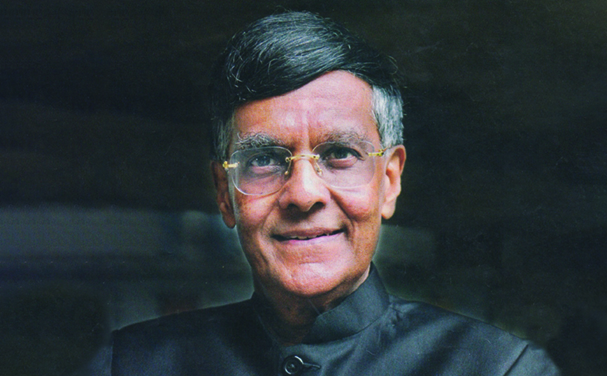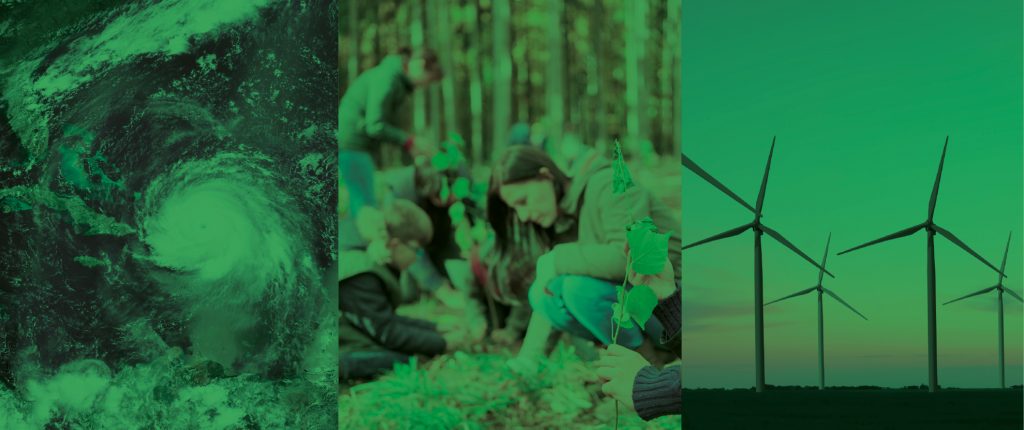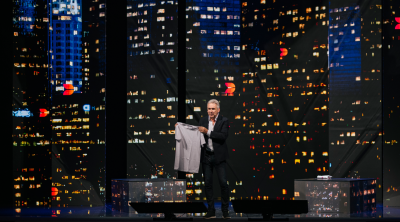Nobel Peace Prize co-winner professor Mohan Munasinghe talks to Future about how attitudes to climate change are evolving and why we must “balance the sustainable development triangle” of economics, social and environmental concerns
In 2007, climate change expert professor Mohan Munasinghe shared the Nobel Peace Prize for his work as vice chair of the UN Intergovernmental Panel on Climate Change (IPCC). Today, 16 years on, his pioneering work continues – we speak following his address at the Planetiers World Gathering 2023 (PWG) event in Portugal. But the global challenges to sustainable development due to climate change impacts, which he has been highlighting for decades, persist more than ever before.
For him then, the hard work of lobbying and educating worldwide governments, businesses and the public continues. Munasinghe helped draft the original landmark UN Framework Convention on Climate Change at the Rio Earth Summit in 1992 and contributed to two more recent global agreements, the Paris Climate Agreement in 2015 and the UN Sustainable Development Goals in 2015. He is founder chairman of the Munasinghe Institute of Development (MIND) and MIND Group; chairman of the Presidential Expert Committee on Sustainable Sri Lanka 2030 Vision; and distinguished guest professor at Peking University, China.
PWG was an important event, Munasinghe says, particularly its efforts to foster connections among young change-makers and the global sustainability community. “It’s a great attempt to address the real problems that the world faces. I am also impressed by young people. I have faith in them, because by using tools like social media and the internet they will be able to solve these complex problems that our generation unfortunately has left behind.”
There is, says Munasinghe, “a nexus of poverty, inequity, and resource shortage” that continues to plague the world. “If you look at the so-called ‘environmental footprint’ of humanity – the sum of environmental resources that are required to support us – current calculations show we will need 1.8 planet’s worth to support our lifestyles sustainably. By 2030, we will need two planets. We don’t have two planets. So clearly, we are running out of resources, certainly from the ecological perspective.”
A second major problem is poverty and the inequality caused by over-consumption. “85% of consumption is done by the richest 20% of the world’s population. The bottom 20% consumes little more than 1% of the resources. So, combining these facts, we come to the vexing question: if there are not enough resources to feed everybody, where are we going to find more resources to help the poor?” says Munasinghe.
“If you look at the so-called ‘environmental footprint’ of humanity – the sum of environmental resources that are required to support us – current calculations show we will need 1.8 planet’s worth to support our lifestyles sustainably. By 2030, we will need two planets. We don’t have two planets. So clearly, we are running out of resources, certainly from the ecological perspective”
Professor Mohan Munasinghe
Four principles to focus on
To combat this inequity, and make human development more sustainable, Sustainomics is an integrated, trans-disciplinary framework Munasinghe introduced at the 1992 Rio Earth Summit. He continues to apply that concept today. 30 years ago, four key principles were established that have been successfully implemented all over the world since then. The first principle is ‘The sustainable development triangle’. “You need economic growth to raise the poor come out of poverty. At the same time, you need to protect the environment. Finally you also need social inclusion and empowerment spread the benefits,” says Munasinghe.
“The second principle is ‘Climbing the mountain’ because, to an individual, problems such as climate change and sustainable development are overwhelming. “It’s like a mountain peak covered with clouds. We need to tell people that if they keep climbing upwards one step at a time, they will eventually reach that invisible peak. Empowerment is key.”
The third principle is about transcending barriers that exist in our mind. Most importantly, we need to replace unethical and unsustainable values like greed, selfishness, corruption and conflict that are currently driving behaviour, says Munasinghe. “We need to have ethical values like selflessness, sharing and cooperation. It’s a tough ask. Furthermore, we need to think globally, beyond just our own neighborhoods. We need to think in terms of decades or centuries, rather than tomorrow or next week.”
Most of all, he says, we need a ‘Stakeholder implementation triangle’, because to implement these factors we must bring major stakeholders together: government, business, and civil society. Increasingly, says Munasinghe, governments “are becoming less capable of dealing with complex problems. We need business and civil society to step up to help do the right thing.”
The fourth principle is ‘Implement, implement, implement’. There are a lot of good plans on the shelf that have never seen the light of day. We need to act now,” he says.
“We need to have ethical values like selflessness, sharing and cooperation. It’s a tough ask. Furthermore, we need to think globally, beyond just our own neighborhoods. We need to think in terms of decades or centuries, rather than tomorrow or next week”
Professor Mohan Munasinghe
Balancing the triangle
The principles of Sustainomics are still relevant today, but they need positive momentum to enact them, he adds. “After 1992, due to lack of funding from rich countries, and inflation issues, a lot of the high hopes vanished. But I worked with others to develop this methodology called ‘Balanced inclusive green growth (BIGG)’. Basically, the triangle must be balanced, without either economic, social or environmental concerns dominating. Each country and community can find their own balance. Rich and poor have different BIGG paths. That’s where we stand in terms of Sustainomics today. It was relevant then; it’s even more relevant today.”
Since Munasinghe shared the Nobel Peace Prize in 2007, how have attitudes to climate change evolve? “I’ve worked for over 30 years with the IPCC. The Nobel Prize was a high point. Unfortunately, the economic collapse in 2008 and successive global problems such as Covid-19 and recent conflicts have diverted the focus and diluted funding.”
For him, the answer to not only climate change, but also achieving all of the UN’s 17 Sustainable Development Goals (SDGs) and the 2030 Agenda, is to implement one of the essential ideas that the Nobel Prize Committee noted in the IPCC´s work, which Munasinghe led. He says: “It’s impossible to tackle climate change in isolation. It is only one of 17 sustainable development goals. We have to address all the sustainable development problems together as BIGG recognizes, and integrate climate change policies for adaptation and mitigation into an overall sustainability strategy.”
Further details:
For more information visit mohanmunasinghe.com







